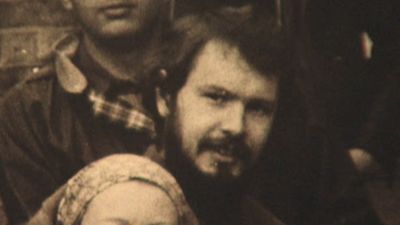Daniel Morgan: What are the key findings from the report into police failings?

The Daniel Morgan Independent Panel’s report has been eight years in the making.
Running to more than 1,200 pages, the panel scrutinised 110,000 documents amounting to more than one million pages as well as a substantial amount of sensitive or secret material held by police as it examined the murder of the private investigator which took place more than 30 years ago.
The panel accuses the Metropolitan Police of a “form of institutional corruption” for concealing or denying failings over the unsolved killing.
It found the force’s first objective was to “protect itself” by failing to acknowledge its many failings since the murder.
The panel said the force owed Daniel Morgan’s family, and the public, an apology for not confronting its systemic failings and those of individual officers.
After the report was published, the Met said they "deeply regret" their failure to bring Mr Morgan's killer to justice and accepted "corruption and the malicious acts of corrupt individuals were a major factor in the failure of the first investigation."
Commissioner Dame Cressida Dick apologised for the failure and said: “I would like to acknowledge, both personally and on behalf of the Met, the extraordinary resilience and determination of Daniel Morgan’s family in their pursuit of the truth and for the conviction of those responsible for his murder.
“It is a matter of great regret that no one has been brought to justice and that our mistakes have compounded the pain suffered by Daniel’s family. For that I apologise again now."
'This constitutes a form of institutional corruption': Panel chairman Baroness Nuala O’Loan explains the report's findings
Other key points raised in the report include:
heavy criticism of the initial investigation into the murder, with the crime scene not searched and left unguarded and alibis not sought for suspects;
a later probe by an external force, Hampshire, was found to have been compromised by the inclusion of a senior Met officer on the team;
it also criticised the Met for then Assistant Commissioner Dame Cressida Dick’s initial refusal to grant access to a police internal data system called HOLMES and the most sensitive information.
The report made a series of recommendations, including calling for:
police officers to be required to declare membership of organisations like the freemasons when they join the service;
vetting processes to be tightened, as well as protections for police whistleblowers;
law enforcement bodies to be subjected to a newly-created “statutory duty of candour”;
The force should also make sure it has the necessary resources to tackle corrupt behaviour among its officers and to ensure police watchdog the Independent Office for Police Conduct is also sufficiently resourced to investigate such matters.
An investigation should be carried out by another police watchdog, Her Majesty’s Inspectorate of Constabulary and Fire and Rescue Services (HMICFRS), looking at police practices and procedures to determine whether “sufficient resources” are available to protect police whistleblowers.